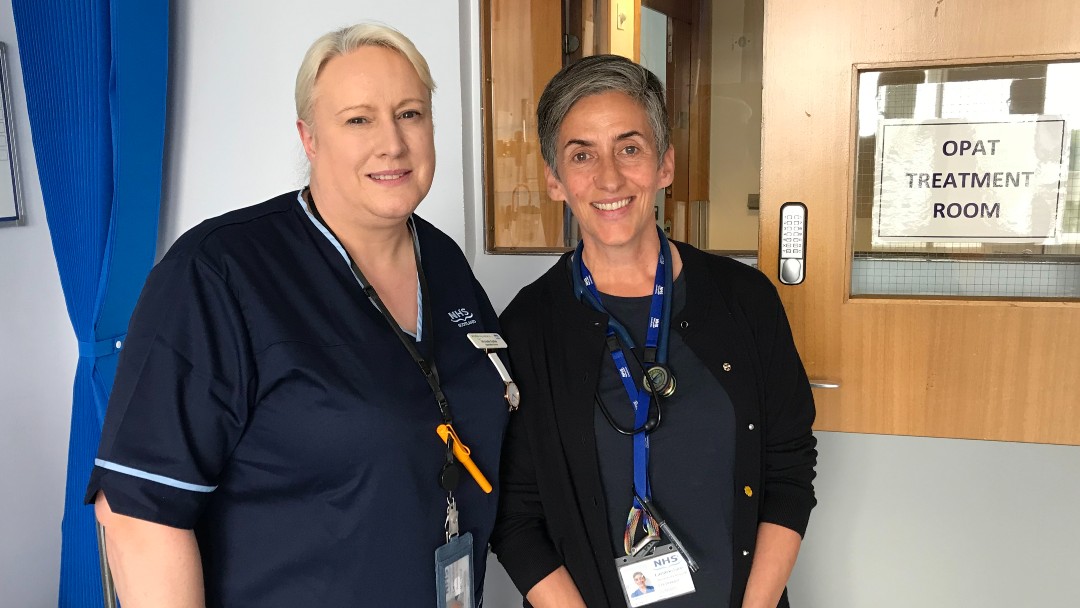NHS Lanarkshire’s outpatient parenteral antimicrobial therapy (OPAT) service turned ten years at the end of August.
The OPAT service allows patients who need long-term IV antibiotic treatment but are otherwise fit for discharge to be treated as an outpatient. This helps achieves better care for patients and relieves pressure on the acute hospitals.
The OPAT team has evolved and developed since its inception and the service has doubled in activity since the start of 2022 with the aim of further expansion. The service currently consists of three consultants, a senior charge nurse, three clinical nurse specialists, a pharmacist and a microbiologist.
Dr Stephanie Dundas, infectious diseases consultant at University Hospital Monklands, said: “The OPAT service is safe and clinically effective and allows suitable patients with serious infections to receive antibiotic treatment without the need for an extended hospital stay. In fact, some patients can avoid admission altogether.
“Nobody wants to stay in hospital for six weeks when you can get out and go home after one or two weeks. We assess each patient, looking at their complexity and healthcare needs and then work out the best way forward for the patient so they can get better from the comfort of their own home.
“Some patients administer the antibiotics themselves or with the help of a carer from home, some come into hospital each day to get their antibiotics while in some cases the district nurse will go to their home and administer the antibiotics.
“OPAT is suitable for different types of people with different types of infections. We need to consider first of all whether the patient is willing to try it, are they physically able, is their cognitive function adequate, do they have family support and are they willing to attend the clinic daily if required.
“Patients who have skin and soft tissue infections – which can require at least five days of intravenous antibiotics – can avoid admission entirely. However, patients can often need four to six weeks of intravenous antibiotics if they have complex or deep-seated infections – for example infections of bone or joint, abscesses, infections of the spine or the discs in the spine.
“During the past year there has been a significant investment in OPAT and we’ve been able to recruit more nurses and a specialist pharmacist, We’ve always worked with a podiatrist, infection doctors and other supporting specialists and it’s very much a multi-disciplinary service.
“With the new additions to the team we are able to see more patients, including seeing patients from more difficult to reach groups. For example, we are now able to see people who injected drugs, managing those patients safely.”
Michelle Spittal, senior charge nurse for the OPAT service, added: “I’ve been with the service from the start back in 2013 and we’ve managed to build it up and introduce protocols on self-administration.
“We get to spend some time with the patients when they come in for their antibiotics and we notice the difference pretty quickly throughout their treatment.
“OPAT is now expanding further into the community. We have been delivering shared care within the East Kilbride and Strathaven locality for five years now and that has worked exceptionally well with the district nurses going out to administer antibiotics in people’s home. We are now expanding into Clydesdale, training district nurses to deliver the same service there.
“This helps patients with social issues or those who require home care and can’t physically get to hospital. Patients love being at home so we try to let people recover there instead of in hospital where possible.”
Further information including referral forms can be found on the FirstPort page.



